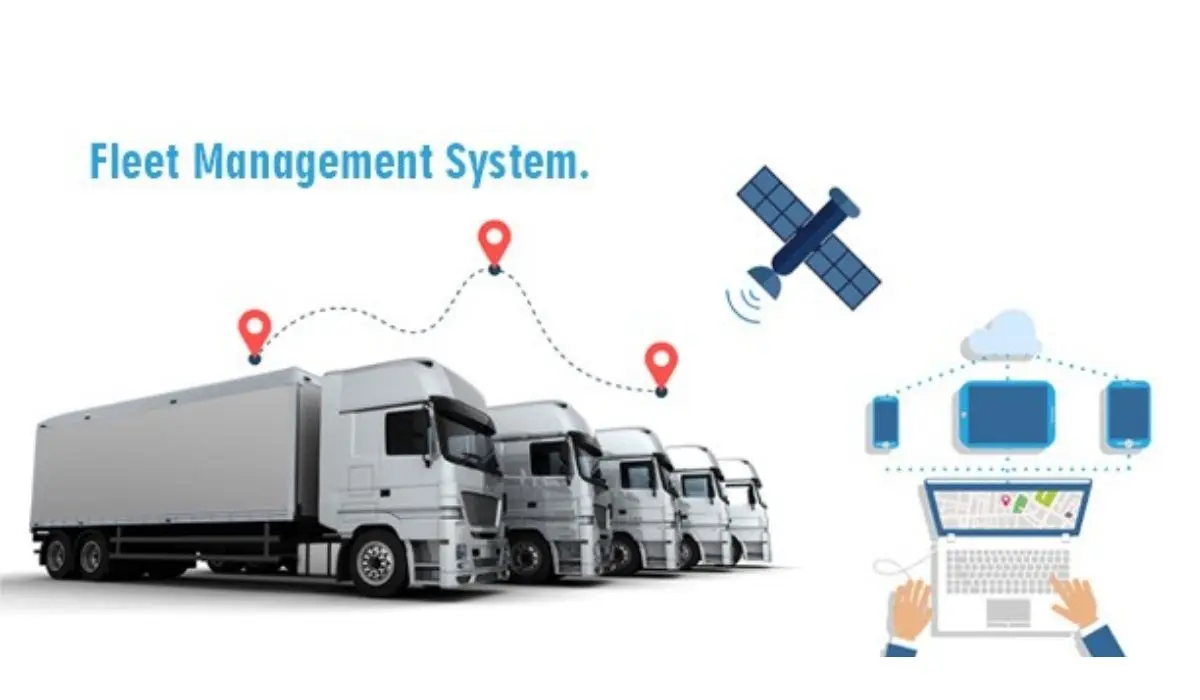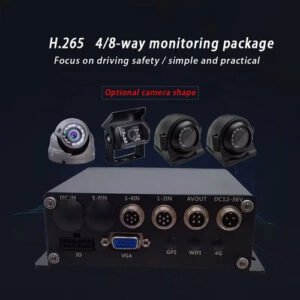In today’s fast-paced world, businesses across industries are striving to streamline operations and maximize efficiency. For companies that rely on a fleet of vehicles, a robust Vehicle Management System (VMS) is no longer a luxury but a necessity. In this article, we’ll explore the importance of a VMS, its benefits, key features, and how to choose the right system for your business.
1. What is a Vehicle Management System (VMS)?
A Vehicle Management System (VMS) is a software platform designed to monitor, manage, and optimize the use of vehicles within a business or organization. It provides real-time data and tools to oversee fleet performance, maintenance, compliance, and expenses.
Whether your business operates delivery vans, trucks, or service vehicles, a VMS centralizes all vehicle-related information, enabling data-driven decision-making and reducing operational inefficiencies.
2. Why Do You Need a Vehicle Management System?
Managing a fleet manually can be overwhelming, time-consuming, and prone to errors. As your business grows, so do the complexities of fleet management. Here are some key reasons why a VMS is essential:
2.1 Cost Reduction
- Fuel Management: A VMS tracks fuel consumption and helps identify inefficiencies such as idling or unnecessary routes.
- Maintenance Scheduling: Regular reminders for maintenance reduce costly breakdowns and prolong vehicle life.
- Optimized Operations: Data insights help streamline routes, reduce mileage, and cut operational costs.
2.2 Enhanced Productivity
- Real-Time Tracking: With GPS integration, a VMS allows you to monitor vehicle locations, ensuring timely deliveries and services.
- Driver Performance Analysis: Tracking driver behavior—such as speeding or harsh braking—improves safety and reduces accidents.
- Time Management: Automating administrative tasks like route planning and compliance management saves hours of manual effort.
2.3 Improved Safety
- Maintenance Alerts: Staying ahead of repairs ensures vehicles are roadworthy and reduces the risk of accidents.
- Driver Monitoring: Alerts for risky behavior promote safe driving practices.
- Emergency Response: Real-time location data helps in responding swiftly to breakdowns or accidents.
2.4 Compliance Management
Businesses must adhere to local and international regulations, including emissions standards, driver hours, and licensing. A VMS simplifies compliance by tracking requirements and generating necessary reports.
3. Key Features of a Vehicle Management System
Not all VMS platforms are created equal. The right system should offer features that align with your business needs. Below are essential features to look for:
3.1 GPS Tracking
Real-time vehicle location tracking ensures you can monitor fleet movements and provide accurate ETAs to customers.
3.2 Maintenance Management
Automated reminders for oil changes, tire rotations, and inspections ensure vehicles stay in top condition.
3.3 Route Optimization
Advanced algorithms calculate the most efficient routes, saving time and fuel costs.
3.4 Driver Behavior Monitoring
By analyzing speed, braking, and acceleration, a VMS can highlight unsafe practices and provide training recommendations.
3.5 Fuel Management
Monitor fuel consumption patterns and identify inefficiencies.
3.6 Reporting and Analytics
Detailed reports on vehicle performance, driver behavior, and costs empower businesses to make informed decisions.
3.7 Integration with Other Systems
A good VMS should integrate seamlessly with ERP, accounting, and other business software to streamline operations.
4. Industries That Benefit from a VMS
A Vehicle Management System is versatile and valuable across various sectors. Below are industries that rely heavily on VMS:
4.1 Logistics and Transportation
Efficiently managing delivery schedules, routes, and driver performance is critical for logistics businesses.
4.2 Construction
Managing heavy equipment and transport vehicles ensures project timelines are met without delays due to breakdowns.
4.3 Retail and E-commerce
Timely delivery of goods is key to customer satisfaction. A VMS optimizes last-mile delivery operations.
4.4 Healthcare
Ambulance services benefit from route optimization and real-time tracking, reducing response times.
4.5 Public Transport
Monitoring routes, schedules, and passenger safety becomes streamlined with a VMS.
5. Benefits of Implementing a Vehicle Management System
5.1 Enhanced Efficiency
Automation of manual tasks such as reporting, compliance checks, and route planning frees up time for strategic initiatives.
5.2 Cost Savings
Fuel optimization, reduced wear and tear, and minimized downtime directly impact the bottom line.
5.3 Better Customer Experience
Accurate ETAs, timely deliveries, and fewer service interruptions improve customer satisfaction and loyalty.
5.4 Environmental Impact
Optimized routes and efficient fuel usage lower your carbon footprint, aligning your business with sustainability goals.
6. How to Choose the Right Vehicle Management System
Selecting the right VMS for your business can be challenging. Here’s a step-by-step guide to help you decide:
6.1 Define Your Requirements
Consider the size of your fleet, the nature of your operations, and specific challenges you face.
6.2 Set a Budget
Determine how much you’re willing to invest and explore options within your budget range.
6.3 Research and Compare
Look for user reviews, case studies, and feature comparisons to narrow down potential solutions.
6.4 Request Demos
A hands-on demo helps assess usability, functionality, and compatibility with your existing systems.
6.5 Prioritize Scalability
Ensure the system can grow with your business and adapt to evolving needs.
7. Future Trends in Vehicle Management Systems
The VMS landscape is evolving rapidly with technological advancements. Here are some trends to watch for:
7.1 Artificial Intelligence (AI) Integration
AI enhances predictive maintenance, route optimization, and driver behavior analysis.
7.2 Electric Vehicle (EV) Management
As EV adoption increases, VMS platforms are incorporating tools to manage charging, range, and energy usage.
7.3 Telematics Expansion
Advanced telematics offer deeper insights into vehicle performance and driver behavior.
7.4 Cloud-Based Solutions
Cloud VMS platforms provide flexibility, scalability, and remote access, ideal for businesses with multiple locations.
7.5 Internet of Things (IoT)
IoT devices enable real-time communication between vehicles and central systems, improving overall efficiency.
8. Common Challenges in Implementing a VMS
While a VMS offers numerous benefits, implementation can come with challenges:
- High Initial Cost: Small businesses may find the upfront investment daunting.
- Learning Curve: Employees may require training to use the system effectively.
- Integration Issues: Ensuring compatibility with existing systems can be complex.
- Resistance to Change: Drivers and staff may resist adopting new technology.
These challenges can be mitigated with proper planning, training, and selecting the right provider.
9. Conclusion
A Vehicle Management System is an indispensable tool for businesses that rely on a fleet of vehicles. From cost savings and enhanced safety to improved efficiency and sustainability, the benefits of a VMS far outweigh the initial investment.
By choosing the right system tailored to your needs, you can transform fleet management into a competitive advantage and future-proof your operations in an increasingly dynamic business environment.






